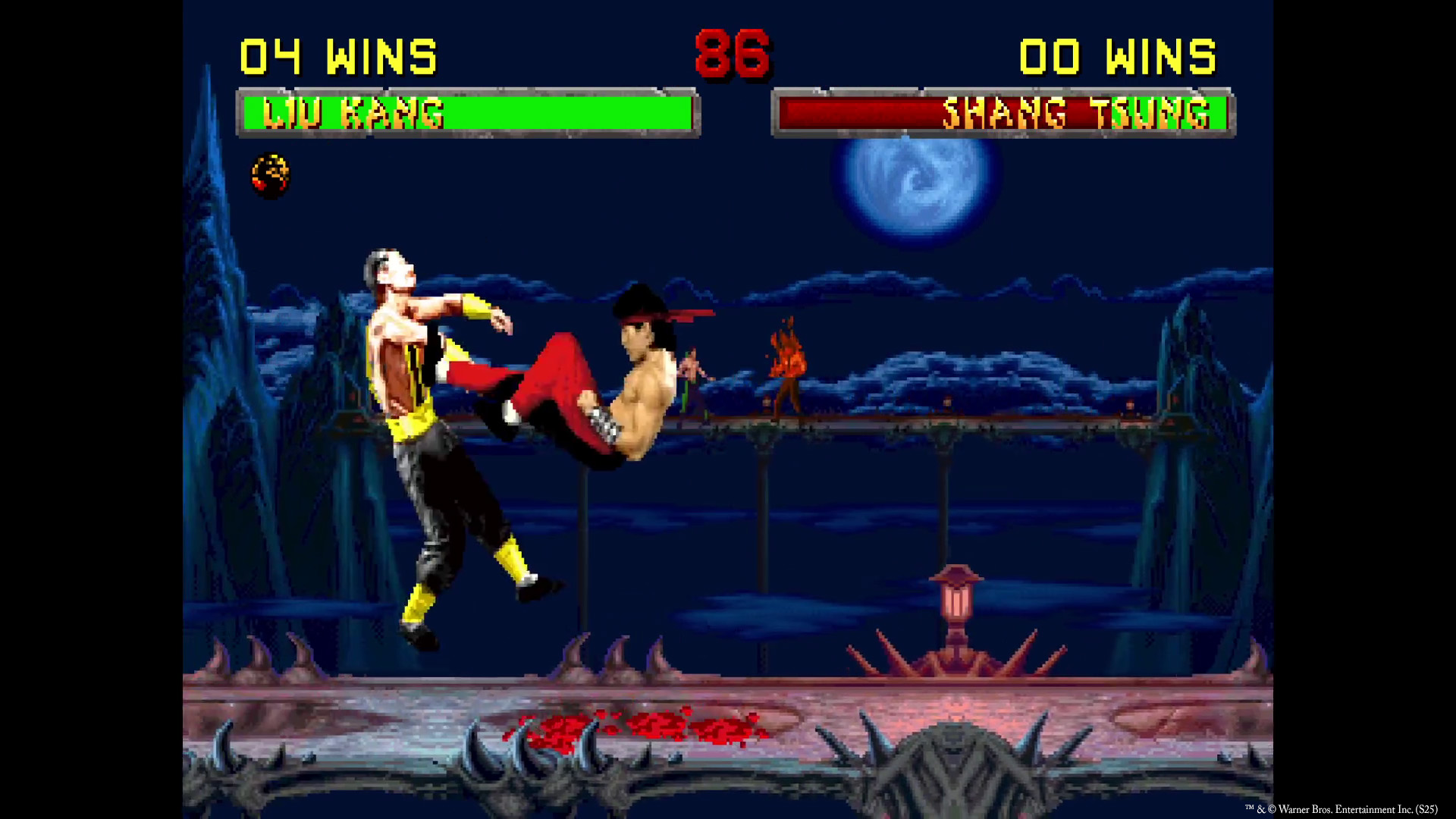
**Mortal Kombat: Legacy Kollection – A Journey Through the Franchise’s Humble Beginnings**
Mortal Kombat has been around for so long that it’s easy to take its legacy for granted. NetherRealm’s newer fighting games have consistently set the standard for what fighting games can be—both in terms of competitive play and immersive single-player stories. While older generations may have fond memories of the series’ early days, and younger players might be completely unaware of them, the *Mortal Kombat: Legacy Kollection* from Atari and Digital Eclipse offers an informative, honest, and fun look at the franchise’s origins.
—
### Primitive Kombat: A Look Back at Classic Games
*Mortal Kombat: Legacy Kollection* features a variety of classic titles drawn from arcade machines, home consoles, and handheld devices. Digital Eclipse is no stranger to preserving and re-presenting retro games for new audiences, yet the Mortal Kombat series posed unique challenges.
Many earlier games receive “warts and all” treatment, giving players a fascinating glimpse into gaming history. For instance:
– The original *Mortal Kombat* for Super Nintendo featured voice acting.
– The Sega Genesis version offered blood effects hidden behind secret codes.
– *Mortal Kombat II* showed noticeable differences in visual presentation and gameplay across the arcade, Super Nintendo, Sega Genesis, and Sega 32X versions.
One gameplay quirk that stands out is loading speed. Specifically, the Super Nintendo version of *Mortal Kombat II* suffered from a stutter whenever a new round started. Overall, these classic versions feel distinctly slower and less polished compared to their arcade originals. Yet, this slower pace is part of their charm, reflecting the standards of the 1990s when their hard-hitting violence and over-the-top finishers set the bar for the genre.
—
### Quality-of-Life Improvements and Polished Ports
Digital Eclipse didn’t just preserve these classics—they enhanced certain versions. The PlayStation ports of *Mortal Kombat Trilogy* and *Mortal Kombat Mythologies: Sub-Zero* notably received optimized loading times and smoother gameplay. Added features like a Rewind option in titles such as *Mythologies* help address some of the original game’s inherent flaws without compromising authenticity.
While these improvements make some versions feel more playable, they can create a sense of inconsistency. Some fans might wish the team had also polished the oldest titles, but others may prefer to see those games exactly as they were originally experienced, warts and all.
—
### Helpful Features and Hidden Gems
The collection shines brightest in its quality-of-life options. Players can enable:
– On-screen move lists
– Fatality timers
– Various cheats
– Developer options on arcade versions
These additions enhance accessibility and fun, while also serving as historical curiosities.
Secret characters are a pivotal part of Mortal Kombat lore, and *Legacy Kollection* honors this with options that unlock fights like the legendary Reptile from the original *Mortal Kombat* or Smoke, Jade, and Noob Saibot battles from *Mortal Kombat II*—without needing to fulfill the original complex conditions. There are even lesser-known unlockables, such as playing as Goro in the Game Boy version.
—
### What’s Missing? A Few Notable Absences
While the mixture of arcade, console, and handheld games offers a robust retrospective, some other era-defining titles are notably absent:
– The arcade version of *Mortal Kombat 4* is included, marking the end of the 2D era, but the Sega Dreamcast port is missing.
– *Ultimate Mortal Kombat 3* appears in arcade and Super Nintendo forms, but the Sega Saturn version would have added fascinating contrast.
– Although the PlayStation version of *Mortal Kombat Trilogy* benefits from smoothing enhancements, a comparison with the Nintendo 64 version would have been intriguing given the differences between CD and cartridge formats.
Nevertheless, this collection remains a strong offering packed with classic fighters, flawed but fun platformers, and curious handheld experiments worth exploring for any Mortal Kombat fan or historian—even *Mortal Kombat: Special Forces*.
—
### A Heartfelt Documentary: The Story of Mortal Kombat’s Origins
Beyond the games, *Mortal Kombat: Legacy Kollection* includes a compelling documentary composed of five-to-ten-minute vignettes chronicling the creation of the original games. It offers rare insight into the early team’s humble beginnings, with appearances by Ed Boon, John Tobias, John Vogel, and Dan Forden.
The documentary has a nostalgic ’90s vibe, featuring original pitches, press releases, TV commercials, magazine clippings, and behind-the-scenes videos from various events. It not only traces the games’ development but also captures Mortal Kombat’s rise as a pop culture phenomenon.
While today’s games sell more units and generate higher revenues (a point Boon emphasizes), the timeline vividly shows just how pervasive and influential Mortal Kombat was in its formative years.
—
### An Honest, Sincere Look at a Pivotal Era
Unlike typical “rah-rah” retrospectives, this documentary embraces a refreshingly honest tone. It acknowledges the franchise’s early successes while candidly addressing its biggest turning point: the transition to 3D with *Mortal Kombat 4*. The team reflects on the risks involved, the decline of arcade culture, and how MK4 became a stepping stone for future audiences.
Not shying away from the tumultuous late ’90s post-*MK3* titles, the documentary covers both the merits and flaws of that era. However, the timeline does taper off somewhat toward the end, offering only brief summaries of the 2000s and 2010s Mortal Kombat games without in-depth context or extra behind-the-scenes content. While the collection isn’t focused on these later titles, it raises the question of why they were included at all when wrapping at the dawn of the 3D era might have felt more natural.
Despite this, the final vignette revisiting nearly everyone involved is heartwarming and well worth the watch.
—
### Round 1: The Verdict
As pure fighting games, nothing in *Mortal Kombat: Legacy Kollection* can rival the polish and pace of NetherRealm’s modern entries. The earliest MK games can feel slow and primitive compared to today’s standards, but they still fundamentally hold up—especially when playing locally with friends.
Quality-of-life improvements and optimization tweaks, particularly for *Mortal Kombat Trilogy*, make the experience much smoother than on original hardware. Training tools and practice modes for several games further support player improvement.
Combined with the heartfelt documentary, *Mortal Kombat: Legacy Kollection* proves once again that Digital Eclipse excels at crafting definitive compilation experiences. Whether you’re a veteran fighter craving nostalgia or a newcomer eager to show your kids what MK was like back in the day, this collection is the best way to journey through the roots of an all-time classic fighting game franchise.
https://www.shacknews.com/article/146581/mortal-kombat-legacy-kollection-review-score





